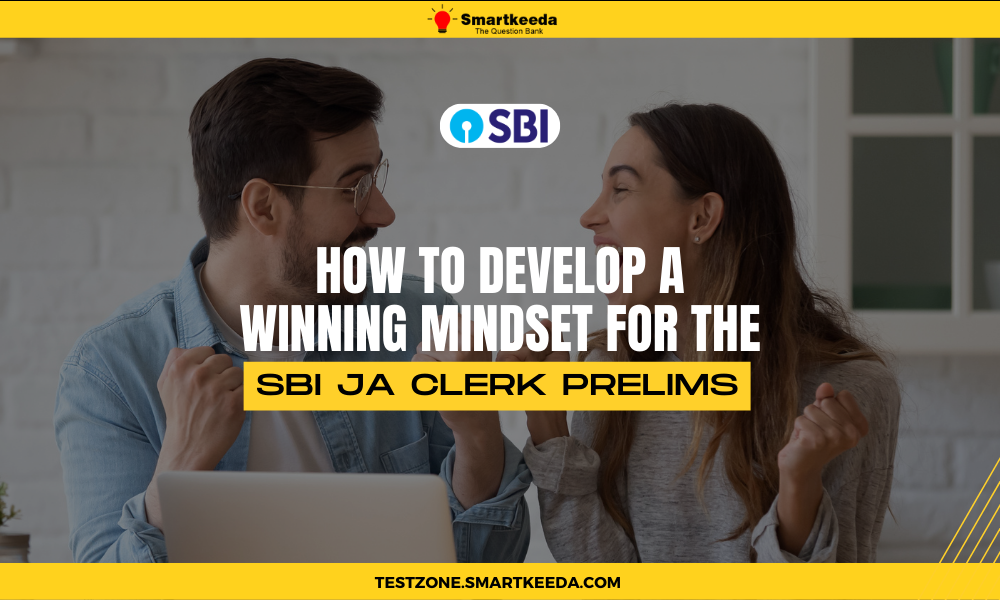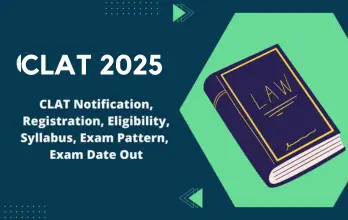
Emphasizing the positive mindset in exam preparation:
Valuing failure as a chance to learn:
Treat every mistake or setback as an opportunity to learn and grow. Analyse your mistakes, understand why they happened, and take corrective actions. Embrace failure as a stepping stone toward success. Effective time allocation strategies for the actual exam:
Practice time-management techniques during your preparation and mock tests. For example:
Comprehend the entire exam pattern and syllabus:
- Divide your study sessions into smaller segments with short breaks in between to maintain focus and avoid burnout.
- Use timers or stopwatch apps to simulate exam conditions and improve your speed.
- Exam Pattern: The SBI JA Clerk Prelims is an online computer-based test comprising three sections: English Language, Numerical Ability, and Reasoning Ability. The exam consists of objective-type multiple-choice questions (MCQs) with a total duration of 1 hour
| Section | Number of Questions | Maximum Marks | Duration |
| English Language | 30 | 30 | 20 minutes |
| Numerical Ability | 35 | 35 | 20 minutes |
| Reasoning Ability | 35 | 35 | 20 minutes |
| Total | 100 | 100 | 60 minutes (1 hour) |
Note: The number of questions and maximum marks may vary based on the discretion of the exam conducting authority syllabus:
(1) English Language:
- Reading Comprehension
- Cloze Test
- Para jumbles (Sentence Rearrangement)
- Error Spotting (Phrase Replacement/Sentence Correction)
- Fill in the Blanks (Single/Double)
- Vocabulary (Synonyms, Antonyms, One-word Substitution, Idioms & Phrases)
(3) Simplification/Approximation
(4) Number Series
(5) Quadratic Equations
(6) Data Interpretation (Tabular, Line Graph, Pie Chart, Bar Graph, etc.)
(7) Arithmetic Topics (Percentage, Ratio and Proportion, Average, Profit and Loss, Time and Work, Time and Distance, Simple and compound Interest, etc.)
(8) Puzzles (Seating Arrangement, Floor-based, Scheduling, etc.)
(9) Syllogism
(10) Coding-Decoding
(11) Blood Relations
(12) Direction Sense
(13) Inequality
(14) Alphanumeric Series
(15) Order and Ranking
(16) Data Sufficiency
(17) Miscellaneous Topics (Logical Reasoning, Input-Output, etc.)
(18) Reasoning Ability
It's important to note that the syllabus mentioned above is a general guideline and may not cover every subtopic or variation that could appear in the exam. Therefore, it's advisable to refer to the official exam notification and rely on authentic study materials and resources for comprehensive and updated information.
Consistently engage in mock test practice sessions:
Regularly take mock tests and practice previous years' question papers to familiarize yourself with the exam format, time constraints, and question patterns. Mock tests will help you identify your strengths and weaknesses, allowing you to focus on areas that need improvement. The best source of quality mock tests is Smartkeeda and you can find them here as well.
Examine the contents of previous papers:
Allocate time for solving previous years' papers and taking mock tests regularly. This will help you become familiar with the exam pattern, manage time effectively, and identify areas that require improvement. Analyze your performance and make necessary adjustments to your time allocation strategy based on the results.
Developing discipline with consistent study routines:
Maintain discipline in your study routine. Follow your study plan diligently, avoid procrastination, and stay committed to your goaand updated information.ls. Consistent effort and discipline are keysto developing a winning mindset. There are other articles also where you can get additional information as well.
Besides these, few more points are crucial like define your goals and aspirations for the exam. Create specific, measurable, achievable, relevant, and time-bound (SMART) goals. This will provide you with clarity and direction, allowing you to focus your efforts effectively.
Also, cultivate a positive inner dialogue. Replace self-doubt and negative thoughts with affirmations and positive statements. Remind yourself of your capabilities, strengths, and past accomplishments. Believe in your ability to succeed.
Always find sources of inspiration and motivation to keep you going during challenging times. Connect with fellow aspirants, join study groups, or seek guidance from mentors. Surround yourself with positive influences that encourage and support your goals. Remember, developing a winning mindset takes time and effort. Stay persistent, stay focused, and embrace the journey. Good luck with your SBI JA Clerk Prelims!

Author : Amrish
Hi, this is Amrish, an Assistant Manager in one of the largest private banks with an extensive background in the banking industry. Having post-graduated with honors in Finance from a renowned university, I embarked on a rewarding career in the financial services industry. With a deep understanding of their unique needs and goals for banking exams, I would love to help aspirants through my blogs. I will keep sharing insights for cracking various exams by providing tips, strategies, mistakes one should avoid, the best resources, and much more. God Speed to all aspirants!
FAQ’s
The SBI JA Clerk Prelims can be a competitive and challenging exam. With a winning mindset, you develop resilience, the ability to bounce back from setbacks and learn from failures. It helps you maintain a positive attitude, even when faced with difficulties, and keeps you motivated to continue striving for success.
Optimizing your study schedule and time management for the SBI JA Clerk Prelims is crucial to make the most efficient use of your time and ensure comprehensive preparation. Here are some tips to help you: Start by thoroughly understanding the exam syllabus and the weightage of each topic. This will help you prioritize your study time based on the importance of each subject and allocate sufficient time to cover all the relevant topics. Design a study schedule that suits your routine and preferences. Divide your available study time into dedicated slots for each subject and topic. Be realistic about the amount of time you can dedicate to studying each day and ensure you have a balanced schedule that covers all subjects adequately. Remember, consistency and discipline are keys to effective time management and optimizing your study schedule. Stay committed to your plan, adapt as necessary, and maintain a positive mindset throughout your preparation for the SBI JA Clerk Prelims.
Always use visualization techniques to mentally picture yourself performing well in the exam. Imagine yourself confidently answering questions, managing time effectively, and achieving your desired results. Visualization can help build confidence and reduce anxiety.
Yes, besides all above points, there are specific practices that can enhance your performance in the SBI JA Clerk Prelims. Here are some effective practices to consider: Stay updated with current affairs, particularly in the banking and financial sectors. Follow relevant news sources, read newspapers, and stay informed about recent developments. Current affairs questions are often asked in the General Awareness section of the exam. After attempting mock tests or practice papers, thoroughly analyze your performance. Identify the questions you got wrong or found challenging, and understand the reasons behind the errors. Learn from your mistakes, revise those topics, and focus on improving your weaknesses. For thoroughly explanation of mock tests, always go for Smartkeeda’s mock tests.
Exam preparation can be stressful, but it's essential to manage stress effectively. Practice stress-reducing techniques such as deep breathing exercises, meditation, physical activity, or pursuing hobbies. Taking care of your well-being will keep you focused and mentally prepared.





